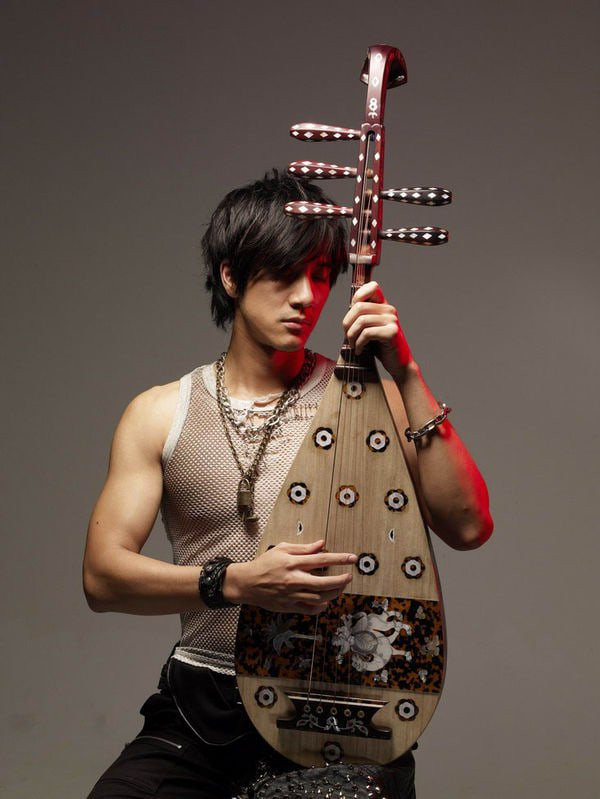It should not come as a surprise that music transcends cultural boundaries. Across decades, individuals have adapted and interpreted foreign cultural elements to suit their preferences, and music is definitely one cultural good that has stood the test of time.
One effective manner to gauge the extent of cultural mixing is through music. Between the East and West, music as a universal language has always sought to bridge the differences in ideologies and cultural practices.
Through the mixing of pop culture references and practices of both the East and West, which is represented by ABC (American born Chinese) pop stars such as Wang Leehom (王力宏), we are able to observe the potency of music in mediating cultural differences.
From Wang, we can then observe the East meets West phenomenon that continues to dominate the Chinese music industry today.
A brief history of Mandopop
Mandopop, a subgenre of C-pop (Chinese pop), consists of music primarily made in Mandarin Chinese. These forms of music are widely consumed by people living beyond China, Hong Kong, and Taiwan, as it goes on to include the ethnic Chinese living abroad, such as those living in East and Southeast Asia.
Since the emergence of Mandopop in the 1980s, music of this genre has been consistently dominated by artists from East Asia. Singers such as Teresa Teng (邓丽君), Faye Wong (王菲) and Jacky Cheung (张学友), who were known for singing in both Cantonese and Mandarin, were extremely popular during this era.

Credits: Fayewong.fandom.com
Mandopop during that period was also largely unperturbed by other foreign influences due to a need to cater to a large Chinese market. This calculated action could be said to be a result of Deng's "Gaige Kaifang" policy in the late 1970s, which saw a higher entrance of non-state-owned products and elements, such as music and fashion from neighbouring ethnic Chinese states.
Fast forward to the 2000s, Mandopop began to receive direct influence from Western styles.
Beyond the return of Chinese American musicians to China, who as a result brought back aspects of their American experience to their homeland, the spread of Western culture caused by the rise of the Internet and globalisation forces have also compelled several Mandopop artistes to look into the West for inspiration.
Wang is thus no exception, given his unique situation.
About Wang Lee Hom (王力宏)
Wang was born in 1976 in Rochester, New York, to a Taiwanese family. Having grown up in the United States, Wang was unfamiliar with the Chinese language as he had only begun to learn it proper at 17-years-old.
He had also pursued a degree in music while studying at Williams College and had been playing both the violin and piano from a young age.
Upon his return to Taiwan, he participated in a talent competition hosted by Bertelsmann Music Group (BMG). Since then, he had signed with various labels, with his breakthrough only coming in his fifth album, Revolution (公转自转), under Sony Music Entertainment in August 1998.
Wang’s music style
Credits: beckyances
In 2004, Wang described his music style as "chinked-out", which represents a "school of hip-hop". In adopting the derogatory term - "chink" - as a way of labelling his music style, Wang was essentially repossessing the term by giving it an alternate meaning.
According to Wang, the "chinked-out" style infuses certain Chinese elements and sounds with hip-hop and R&B, which are genres that originated in African American communities. Wang also sought inspiration from American hip-hop artists such as R.Kelly and Outkast, who were huge influences in his musical taste while growing up in the States.
Nonetheless, despite the strong Western influence, Wang was consistent in including Chinese elements into his music. Notwithstanding the language used, his music often comprised of traditional Chinese instruments such as the erhu, huqin, and guzheng. Certain sounds associated with the Chinese culture, such as the music of Beijing Opera, was also incorporated into his tunes.

Credits: foreversfirstday.tumblr.com
The "chinked-out" style adopted by Wang can be seen in many of his songs, one being Hua Tian Cuo (花田错) - representing "mistake in the flower fields".
This song features traditional Chinese instruments such as the erhu and paiban, which are all key instruments present in the Beijing opera.
However, in other parts of the piece, Chinese elements were swapped out and replaced with American hip-hop elements. For instance, the sustained bass-heavy beat present in the song is more popular and widely adopted in the West.
Wang's ability to find a middle ground that allows both musical elements to converge thus represents the rise of a new musical era in the Mandopop industry.
The intersection of Eastern and Western concepts of time, expressed through music
Credits: chinawhisper
In some of his greatest hits, songs like Forever Love employ the Western conception of romance through the use of terms such as "forever" to mark the contrast from Chinese romanticism.
While eternity is a concept prevalent in traditional Chinese culture, especially in the domain of spirituality which promotes the idea of immortality, the dominant belief in Buddhism and reincarnation is still more relevant for the everyday man.
The belief in Buddhism suggests a cyclical nature of mortal life, which is bound to constitute regular destruction and integration of various earthly subjects.
In this sense, the concept of eternity is instead replaced with beliefs in reincarnation. Chinese lovers thus believe in notions such as "来生再见“, which suggests reunification in their next lives. On the other hand, the Western belief in a linear history and eternity is encapsulated in one of the Bible's verses:
"Finally I considered the task God gave to the sons of men. He made everything fitting in its time, but he also set eternity in their hearts although man is not able to embrace the work of God from the beginning to the end."
Ecclesiastes iii, 1-10.
In this sense, by using the term “forever” in his song, Wang pushed to the Chinese audience a possible reality of loving someone for as long as eternity lasts.
In a very abstract manner, Wang was able to reconcile these cultural distinctions by suggesting that Chinese, like the West, are capable of having a love that lasts indefinitely.
Significance of music in bridging cultural differences
As seen through Wang, his Americanized background, along with his Chinese ethnicity, helped inform his ability to explore and create unique musical genres.
However, this phenomenon is not solely distinctive to Wang himself, as other artists such as Jay Chou (周杰伦) are also key figures in the Mandopop sphere who have adopted the "chinked-out" style.
Credits: dafc
Like Wang, Jay also incorporates hip-hop and rap elements into his music. Crowned as the R&B and rap prince of Chinese music, Jay is an exceptional musician adept at infusing Western elements into his music.
At the same time, he actively employs a vast range of Chinese elements in his music. Beyond Chinese musical instruments, Jay goes as far as to include traditional Chinese elements such as Chinese poetry and ideas associated with Confucianism.
In all, while the intersection of Eastern and Western culture is extremely commonplace in the 21st century, such phenomena are mostly made possible by individual attempts to popularise them.
Music is thus a key platform when considering the extent to which these two distinct cultures can coexist. The minor transgressions in one’s musical style, from using different languages to infusing other cultural elements, are thus consequential in shaping the broader discourse surrounding the East meets West phenomenon.
Featured image courtesy of kajeyomama.
References:
Chen, B. (2012). The Expression of Chineseness and Americanness in Chinese Popular Music: A Comparison of ABC Pop Stars Wang Leehom and Vanness Wu. University of Texas Press.
On Western And Chinese Conception Of Time: A Comparative Study. (n.d.). Retrieved from https://brewminate.com/on-western-and-chinese-conception-of-time-a-comparative-s

















